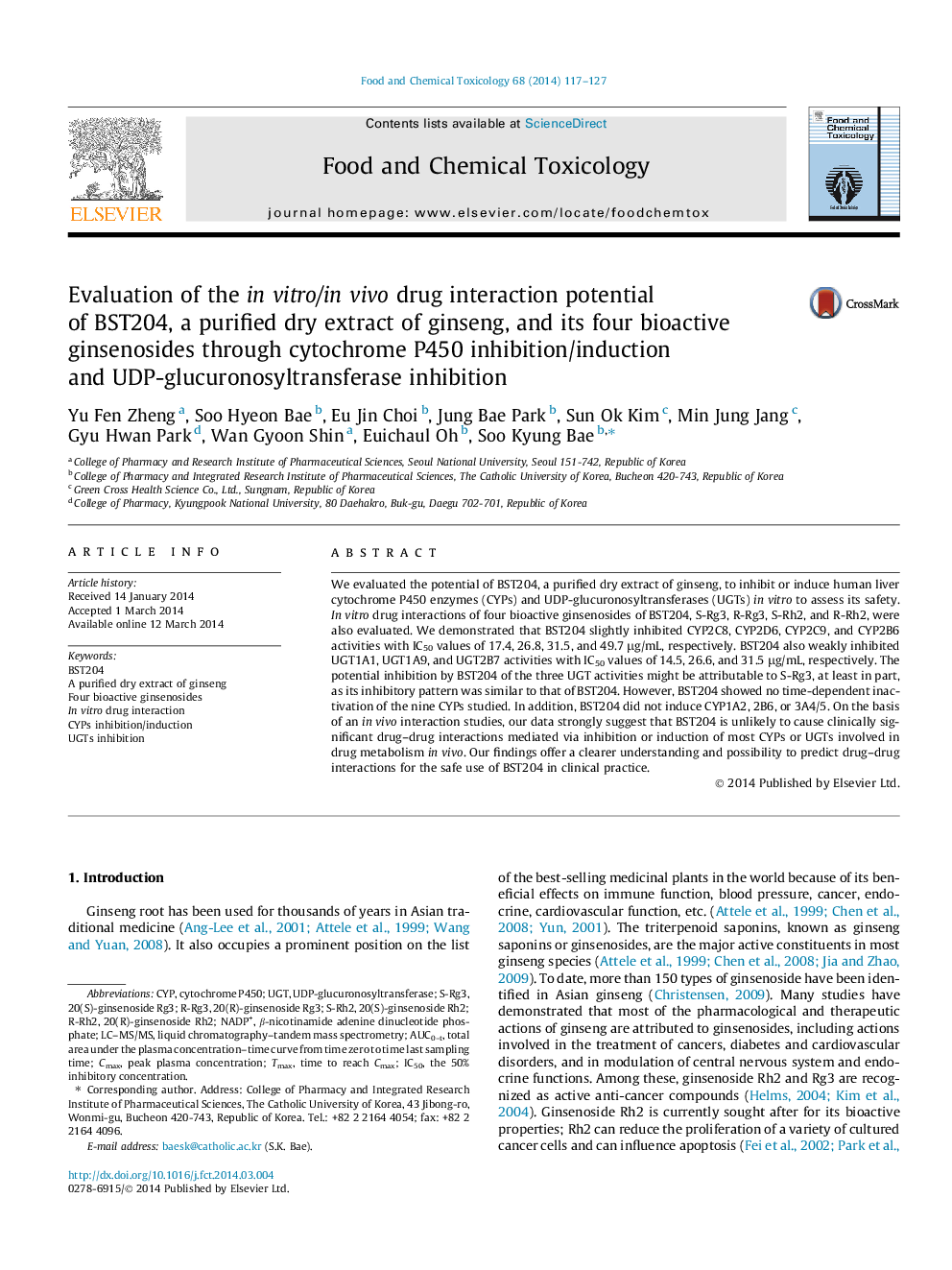| Article ID | Journal | Published Year | Pages | File Type |
|---|---|---|---|---|
| 5850507 | Food and Chemical Toxicology | 2014 | 11 Pages |
Abstract
We evaluated the potential of BST204, a purified dry extract of ginseng, to inhibit or induce human liver cytochrome P450 enzymes (CYPs) and UDP-glucuronosyltransferases (UGTs) in vitro to assess its safety. In vitro drug interactions of four bioactive ginsenosides of BST204, S-Rg3, R-Rg3, S-Rh2, and R-Rh2, were also evaluated. We demonstrated that BST204 slightly inhibited CYP2C8, CYP2D6, CYP2C9, and CYP2B6 activities with IC50 values of 17.4, 26.8, 31.5, and 49.7 μg/mL, respectively. BST204 also weakly inhibited UGT1A1, UGT1A9, and UGT2B7 activities with IC50 values of 14.5, 26.6, and 31.5 μg/mL, respectively. The potential inhibition by BST204 of the three UGT activities might be attributable to S-Rg3, at least in part, as its inhibitory pattern was similar to that of BST204. However, BST204 showed no time-dependent inactivation of the nine CYPs studied. In addition, BST204 did not induce CYP1A2, 2B6, or 3A4/5. On the basis of an in vivo interaction studies, our data strongly suggest that BST204 is unlikely to cause clinically significant drug-drug interactions mediated via inhibition or induction of most CYPs or UGTs involved in drug metabolism in vivo. Our findings offer a clearer understanding and possibility to predict drug-drug interactions for the safe use of BST204 in clinical practice.
Keywords
Related Topics
Life Sciences
Agricultural and Biological Sciences
Food Science
Authors
Yu Fen Zheng, Soo Hyeon Bae, Eu Jin Choi, Jung Bae Park, Sun Ok Kim, Min Jung Jang, Gyu Hwan Park, Wan Gyoon Shin, Euichaul Oh, Soo Kyung Bae,
